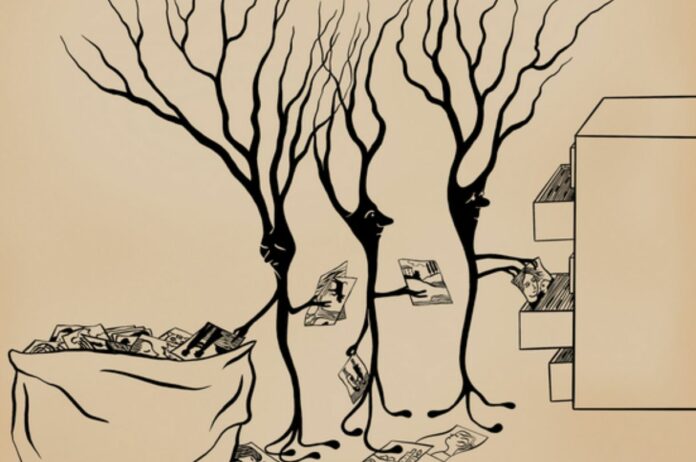A potential target for developing treatments for memory disorders
In a recent study, researchers have identified a brain region that plays a critical role in linking short-term memories in the hippocampus to long-term memories in the cortex.
The study highlights the importance of the anterior thalamus in the memory consolidation process and provides new insights into how memories evolve and become more enduring over time.
According to Priya Rajasethupathy, a researcher at Rockefeller University, these findings represent a significant step forward in our understanding of memory formation and could have important implications for treating memory disorders in the future.
Scientists have long held the view that the hippocampus is responsible for forming new memories, which are then gradually transferred to the cortex for long-term storage. However, researchers have been limited in their ability to study how this process occurs due to technological constraints.
To understand the mechanisms that underlie memory consolidation between the hippocampus and cortex, scientists would need to observe brain activity over an extended period. Unfortunately, conventional microscopes are limited to recording activity in a narrow region, while electrophysiology studies cannot capture activity over many weeks.
These limitations have made it challenging for researchers to investigate the complex processes involved in memory consolidation.
“We wanted to watch how a memory changes in the same mouse, in the same neurons, over time,” adds co-author Andrew C. Toader. “So we had to develop technology to observe neurons in intervening areas between the hippocampus and cortex over weeks, tracking them and seeing how they change.”
Using their newly developed technology, Rajasethupathy and her research team investigated the consolidation of memories in mice. To enable extended imaging, the mice had to remain still for several weeks, so the researchers devised a method using an axially rotating styrofoam ball similar to a treadmill, allowing the mice to navigate virtual reality mazes.
The mice were rewarded with high-value treats for making specific turns in the maze, while other navigational decisions resulted in minor positive or negative feedback. A month later, the mice continued to run towards the areas in the maze with the highest rewards, indicating that they retained memories of the decisions with the highest payoffs.
“The key was that the mice could learn all three outcomes in the short-term—very high rewarding, low rewarding, and adverse—but only the high reward would be remembered a month out, because it was the most salient memory,” points out co-author Josue Regalado. “That way, we could measure the differences in the neural circuit when recording memories that will be conserved.”
The study revealed that the anterior thalamus, a previously overlooked region of the brain, plays a crucial role in regulating the memory consolidation process between the hippocampus and cortex. Although surprised by these findings, Rajasethupathy noted that Korsakoff Syndrome patients with lesions on their anterior thalamus suffer from severe amnesia and memory loss, providing some clues about the thalamus’s involvement in memory consolidation.
Further experiments confirmed the importance of the thalamus in memory consolidation in mice. Rajasethupathy’s team discovered that inhibiting the thalamus disrupted the formation of long-term memories in mice, whereas enhancing the thalamus enabled memories that would have otherwise been lost to be stored long-term.
These findings highlight the critical role of the anterior thalamus in the memory consolidation process and could offer new therapeutic targets for treating memory disorders.
“There are a lot of ways to make memories not happen,” Regalado adds. “One of the major breakthroughs of this paper is that we show that manipulating the anterior thalamus is one way to increase the importance of a memory, and make the mice store it long-term.”
In the future, Rajasethupathy’s research team plans to delve deeper into understanding the precise mechanisms through which the thalamus contributes to long-term memory storage.
“The question is what the thalamus does when a memory is valuable, and needs to be saved long-term, that it doesn’t do for less valuable memories,” she adds.
According to Rajasethupathy, the thalamus may act as a continuous reminder to the cortex, facilitating the conversion of memories from short-term to long-term storage.
“The thalamus is in continuous dialogue with the cortex over weeks, saying ‘stabilize this’,” Rajasethupathy adds. “Less salient memories drop off because the cortex isn’t getting a constant signal from the thalamus to keep this memory.”
Despite its crucial role in memory consolidation, it is likely that the thalamus is just one piece of the puzzle, and more research is necessary to fully understand the complex processes involved.
“We don’t think the thalamus is the only region needed for memory consolidation, and we hope our findings will be blended with other models out there describing this intervening region,” she adds. “Our findings—an intervening brain area that is definitively involved in memory consolidation in mice, and which is linked to human patients with memory disorders—provide an inroad for further research.”
Source: 10.1016/j.cell.2023.02.024
Image Credit: Illustration by Julia Kuhl
